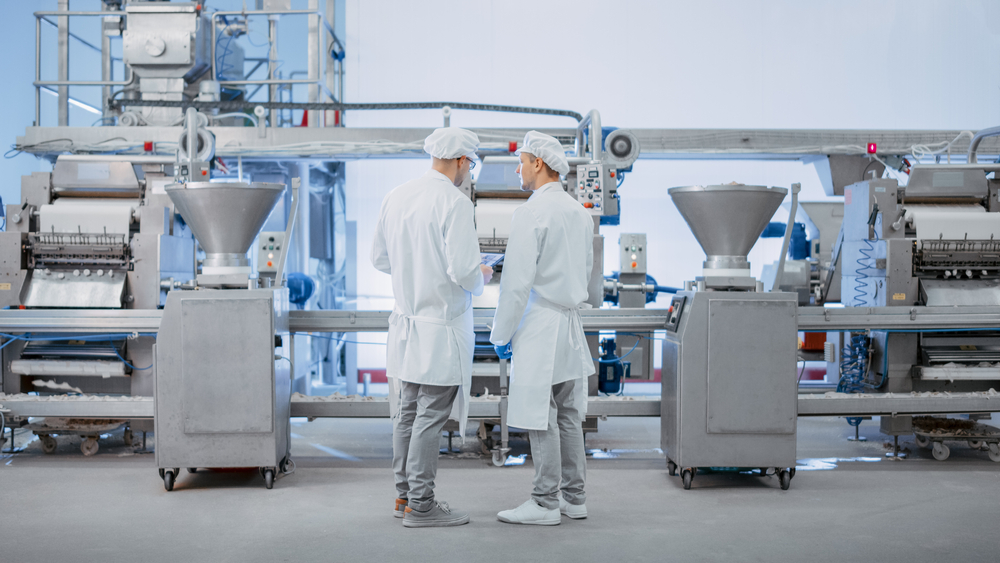The recent E.coli outbreak linked to lettuce has caused over 200 illnesses and has brought food safety to the forefront for food manufacturers, storage and distribution facilities, and brokers.
Working in hot environments presents significant challenges that can exacerbate food safety risks, including the proliferation of harmful bacteria like E.coli. At Complete Food Safety, we are committed to helping businesses navigate these challenges and ensure the safety and quality of their products.
The impact of heat on food safety
High temperatures can significantly impact food safety. Bacteria such as E.coli, Salmonella, and Listeria thrive in warm environments, rapidly multiplying and increasing the risk of foodborne illnesses.
According to the World Health Organization (WHO), the rate of bacterial growth doubles for every 10°C increase in temperature, emphasising the critical need for effective temperature control in food operations.
The recent E.coli outbreak underscores the importance of maintaining rigorous food safety standards, especially in hot environments where bacterial growth can quickly get out of control.
Challenges in food manufacturing
In food manufacturing, maintaining optimal temperatures is crucial to prevent contamination and spoilage. High temperatures can cause ingredients to deteriorate and lose their nutritional value, leading to compromised product quality. For instance, dairy products can sour quickly, and meats can develop harmful bacterial loads if not properly refrigerated.
The U.S. Food and Drug Administration (FDA) highlights that keeping perishable foods below 5°C is essential to slow down bacterial growth. In light of the recent E.coli outbreak, it’s more important than ever to ensure stringent temperature controls are in place to prevent similar incidents.

Storage and distribution: maintaining the cold chain
For storage and distribution, maintaining the cold chain is vital. The cold chain refers to the series of actions and equipment required to keep perishable products at low temperatures from production to consumption.
Any break in the cold chain can result in temperature abuse, leading to the rapid growth of pathogens. The International Institute of Refrigeration (IIR) estimates that up to 20% of global food production is lost due to the lack of proper refrigeration, underscoring the importance of maintaining consistent temperatures. Given the recent E.coli outbreak, maintaining the integrity of the cold chain is essential to prevent further contamination.
Brokers and agents: ensuring compliance
Food brokers and agents play a crucial role in ensuring that food products comply with safety standards throughout the supply chain. They must verify that manufacturers, storage facilities, and transporters adhere to stringent temperature controls.
In hot environments, this involves regular monitoring and documentation to ensure compliance with food safety regulations. The Global Cold Chain Alliance (GCCA) recommends the use of real-time temperature monitoring systems to provide continuous oversight and minimise the risk of temperature excursions.
How Complete Food Safety can help
At Complete Food Safety, we offer comprehensive solutions to help businesses manage food safety in hot environments, particularly in the wake of the recent E.coli outbreak. Our services include:
1. Food safety audits: our expert auditors conduct thorough assessments of your facilities and processes, identifying potential risks and recommending corrective actions to enhance food safety.
2. Customised food safety plans: we work with you to develop tailored food safety plans that address the specific challenges of working in hot environments, ensuring compliance with local and international standards.
Working in hot environments poses significant challenges for food safety in the manufacturing, storage, and distribution sectors.
By implementing robust temperature control measures and adhering to best practices, businesses can mitigate risks and ensure the safety and quality of their products.
Complete Food Safety is here to support you with expert guidance, advanced solutions, and comprehensive training to help you navigate the complexities of food safety in hot environments.
Visit our website to learn more about how we can assist you in maintaining the highest standards of food safety amidst the current challenges.

